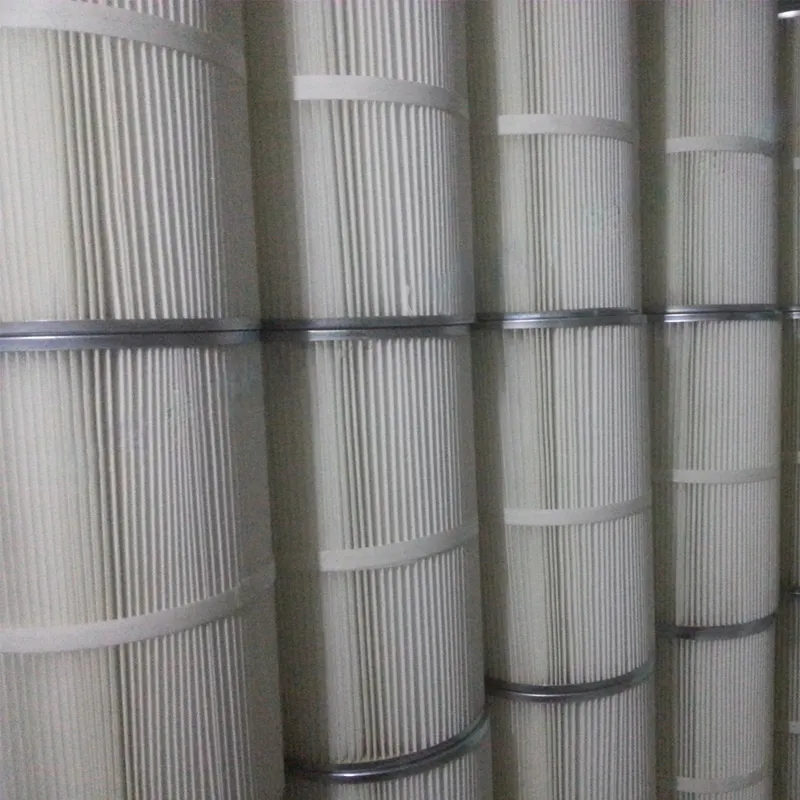 Tel:
+8615930870079
Tel:
+8615930870079
יול . 31, 2024 23:46 Back to list
Effective Cartridge Vacuum Filters for Efficient Solid-Liquid Separation and Filtration Processes in Industries
The Importance of Cartridge Vacuum Filters in Industrial Applications
Cartridge vacuum filters are essential components in various industrial processes, primarily used for separating solid impurities from liquids and gases. This technology has gained significant popularity across multiple sectors due to its efficiency and effectiveness in achieving high levels of filtration. Understanding how cartridge vacuum filters work and their applications can provide valuable insights into their importance in modern industry.
What are Cartridge Vacuum Filters?
Cartridge vacuum filters consist of a series of filter cartridges housed within a filtering unit. The cartridges are typically made from porous materials, designed to allow the passage of liquids or gases while retaining solid particles. When a vacuum is applied, the liquid or gas is drawn through the cartridges, enabling efficient separation of solids from the fluid medium. This process not only enhances the clarity of the liquid but also protects downstream equipment by preventing the entry of particulates.
How Do They Work?
The operation of cartridge vacuum filters begins with the introduction of the mixture containing solids and liquids into the vessel. Once the vacuum is applied, the fluid is pulled through the filter cartridges, where the porous media captures solid particles. The filter design can vary, with some cartridges having multiple layers or different pore sizes to cater to specific filtration requirements. Regular backwashing is typically employed to clean the cartridges, ensuring prolonged performance and reduced maintenance costs.
Key Advantages
1. Efficiency Cartridge vacuum filters provide a high filtration rate, allowing for substantial throughput in industrial operations. This efficiency minimizes the time and energy spent on filtration processes, thereby lowering operational costs.
2. Versatility These filters are suitable for a wide range of applications, from wastewater treatment to food and beverage processing, and even pharmaceutical manufacturing. Their ability to adapt to different fluids and particle types makes them a versatile solution for many industries.
3. Cost-Effective Compared to other filtration methods, cartridge vacuum filters often require lower capital investment and maintenance costs. Their modular design allows for easy upgrades and replacements of cartridges without major overhauls in the filtration system.
cartridge vacuum filter

4. Reduced Environmental Impact By effectively removing contaminants from process water, cartridge vacuum filters play a crucial role in minimizing waste discharge and meeting regulatory standards. This capability not only reduces environmental impact but also promotes sustainability within industries.
Applications
The application of cartridge vacuum filters spans across numerous sectors
- Food and Beverage Industry In this sector, maintaining product quality and safety is paramount. Cartridge filters help in the clarification of juices, wines, and oils, ensuring that only the highest quality products reach consumers.
- Pharmaceutical Industry Here, stringent cleanliness standards are vital. Cartridge vacuum filters aid in the purification of solvents and other liquids, crucial for drug formulation and manufacturing processes.
- Chemical Processing In chemical industries, these filters remove unwanted particles from process streams, thereby enhancing product quality and process efficiency.
- Wastewater Treatment The use of cartridge vacuum filters in wastewater treatment facilities contributes significantly to reducing pollutants, making it possible to recycle water and comply with environmental regulations.
Conclusion
Cartridge vacuum filters are an integral part of modern industrial filtration systems. Their ability to efficiently separate solids from liquids while being versatile and cost-effective makes them indispensable in various applications. As industries continue to prioritize sustainability and efficiency, the role of cartridge vacuum filters will only grow, contributing to cleaner processes and a healthier environment. As technology advances, further improvements in filtration methods will likely enhance the capability and efficiency of these essential filters, ensuring they remain a cornerstone of industrial operations.
-
Types and Applications of Air Filtration CartridgesNewsJul.28,2025
-
The Role of Gas Turbine FiltersNewsJul.28,2025
-
Mastering Air Filter Cartridge UseNewsJul.28,2025
-
Advanced Turbine Filters for Modern Gas TurbinesNewsJul.28,2025
-
Cellulose Air Filter Cartridge Advantages in Dust FiltrationNewsJul.28,2025
-
Cellulose Filters for Air Particle ReductionNewsJul.28,2025

 Email:
Email:





